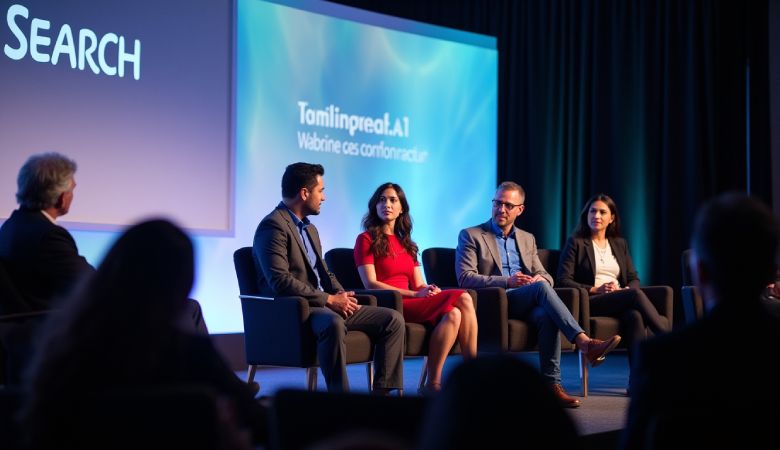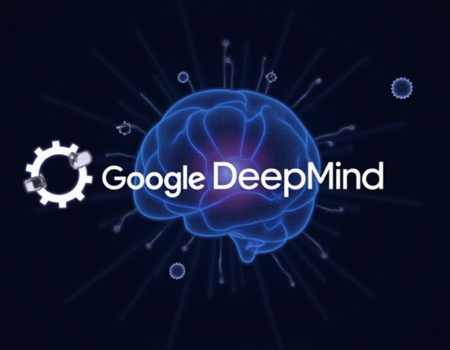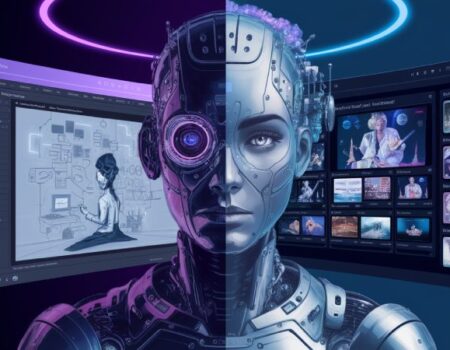AI Search and the Future of Search: What’s Next for SEO and Digital Discovery
With the rise of AI-powered search, search engines are evolving beyond simple information retrieval. Instead of directing users to web pages, they now provide immediate answers, reshaping search behavior and challenging traditional SEO strategies.
This transformation is fueled by generative AI, conversational search, and deep research capabilities, making Google Search and other AI search platforms more interactive and intuitive. But what does this mean for businesses, content creators, and digital marketers?
Let’s explore the key trends shaping the future of search.
The Breakneck Evolution of AI Search
Over the past few years, the world has witnessed rapid advancements in AI-powered search and search engines. Just three years ago, Google Search relied on conventional ranking algorithms, and OpenAI’s ChatGPTwas still in its early stages.
Fast-forward to 2025, and generative AI has revolutionized search behavior.
Major AI Developments in Search
- DeepSeek R1 – Introduced in early 2025, this open-source deep research model stunned the AI community with its speed and efficiency.
- Grok 3 by xAI – Launched weeks later, Elon Musk’s AI model outperformed competitors, boasting a more relaxed content moderation approach.
- Claude 3.7 Sonnet and Claude Code by Anthropic – These models, designed for programming and debugging, showcase how AI search is expanding beyond general queries into specialized fields.
These advancements demonstrate that AI-powered search is no longer about simple query matching—it’s about deep comprehension, context-driven responses, and task execution.
Google’s AI Mode: A Glimpse Into the Future of Search
On March 5, 2025, Google Search introduced AI Mode, an experimental feature built on generative AI and conversational search principles.
What Is AI Mode?
AI Mode allows users to:
- Engage in a conversational search experience.
- Refine complex queries through an interactive back-and-forth process.
- Receive detailed summaries using a deep research approach.
By leveraging natural language processing (NLP) and real-time data collection, AI-powered search with AI Mode enhances research efficiency. However, this also means fewer users will click through to websites—accelerating the rise of zero-click searches.
For SEOs, marketers, and content creators, this shift poses a critical challenge: How do you maintain visibility when search engines are providing answers directly?
The Future of AI Search: Agentic AI and Deep Research
Two emerging AI concepts are set to shape the future of search:
Agentic AI Models
These AI systems don’t just retrieve information—they execute tasks. Imagine an AI that can:
- Book flights and hotels.
- Automate repetitive workflows.
- Navigate checkout pages for online purchases.
Deep Research Models
Unlike traditional search engines, deep research models conduct multi-step investigations. Instead of retrieving one source, they:
- Pull information from multiple websites.
- Analyze and summarize key insights.
- Present a structured, comprehensive response.
Projects like Google’s Project Mariner and OpenAI’s Operator are already showcasing these capabilities, merging AI-powered search with real-world task automation.
How AI Search Will Change User Behavior
Consider a scenario where you’re planning a trip to Tokyo. Normally, you’d spend hours researching flight options, weather patterns, and recommended hotels.
With AI-powered search, a deep research model can:
- Search across multiple sources.
- Compare prices, reviews, and recommendations.
- Generate a detailed, personalized itinerary.
An agentic AI model could go even further—automatically booking your flights and accommodations.
This shift represents a fundamental change in search behavior. Instead of clicking through multiple websites, users will rely on AI-powered search for complete solutions.
Key Trends Shaping the Future of Search
1. The Rise of Zero-Click Searches
Since May 2024, Google Search has been reducing organic traffic to websites through AI Overviews. As AI-powered search becomes more sophisticated, the need for users to click external links will decline even further.
For businesses, this means:
- Focusing on brand visibility rather than just traffic.
- Adapting to AI-generated responses within search engines.
2. Hyper-Personalized Search Experiences
With advances in natural language processing (NLP) and generative AI, search experiences will become increasingly personalized.
For example, if you regularly search for fitness tips, an AI-enhanced Google Search could tailor its results based on:
- Your past searches.
- Your location and browsing history.
- The time of day or your current activity.
For businesses, this means creating hyper-niche content that aligns with specific audience preferences.
3. Multimodal Search Will Become Standard
Google Search is already integrating multimodal capabilities through tools like Google Lens and Project Astra, allowing users to:
- Search with images.
- Receive voice-based answers.
- Interact with AI in real time.
For brands, this signals the need to optimize content beyond text—embracing image, video, and audio search as part of AI-powered search strategies.
4. AI’s Impact on Commercial Search
While zero-click searches dominate informational queries, commercial searches still play a vital role in user decision-making. Unlike simple fact-based queries, purchasing decisions often involve deep research, comparisons, and multiple touchpoints before a user commits to a product or service.
Consumers still:
- Compare products – Shoppers rely on detailed comparisons, checking specifications, features, and benefits before making a purchase.
- Read reviews – Customer feedback remains a crucial factor, with many users trusting peer recommendations over traditional advertisements.
- Seek recommendations – Whether through influencers, social media, or AI-generated suggestions, users look for credible sources before buying.
However, AI-powered search is changing how this process works. Instead of manually searching multiple sources, consumers can now ask AI assistants to compile the best recommendations based on price, quality, and availability.
For brands, this means adapting to new search trends by:
- Leveraging user-generated content – Reviews, testimonials, and real customer experiences are now more valuable than ever. AI models prioritize content that reflects authentic user opinions, making social proof essential for visibility.
- Optimizing for AI-generated summaries – Since search engines now generate direct answers, brands must structure their content to be AI-friendly. This means:
- Using structured data and schema markup to ensure AI correctly interprets product details.
- Creating comprehensive comparison pages with clear, data-backed insights.
- Highlighting key benefits in a concise yet informative manner.
- Ensuring presence in multimodal search – With AI assistants analyzing images, videos, and voice searches, brands must optimize content beyond text. Product demos, unboxing videos, and interactive FAQs can improve discoverability.
- Building trust through authoritative content – AI models favor sources that demonstrate E-E-A-T (Experience, Expertise, Authoritativeness, and Trustworthiness). Brands with well-researched, credible content will rank higher in AI-powered search results.
As AI search continues evolving, commercial searches will become more interactive and personalized. Businesses that adapt to this shift—by aligning their strategies with AI-powered search trends—will maintain a competitive edge in the digital marketplace.
Content Quality Still Matters in AI Search
Despite AI’s growing role in search engines, one thing remains constant: high-quality content is essential.
Both Google Search and AI models rely on retrieval-augmented generation (RAG) to source information. To maintain visibility, brands must:
- Prioritize E-E-A-T (Experience, Expertise, Authoritativeness, Trustworthiness).
- Publish credible, well-structured content.
- Ensure AI models recognize and trust their information.
As AI-powered search evolves, brands with authoritative content will remain relevant in an increasingly AI-driven ecosystem.
Partner with our Digital Marketing Agency
Ask Engage Coders to create a comprehensive and inclusive digital marketing plan that takes your business to new heights.
Preparing for the Future of AI Search
The shift toward AI search, deep research, and conversational search is already underway.
For businesses and marketers, success in this new era requires:
- Adapting to changing search behavior.
- Leveraging AI’s ability to summarize and refine information.
- Optimizing content for multimodal and AI-powered search experiences.
By embracing these changes, brands can maintain visibility and relevance in the evolving world of Google Search and beyond.







